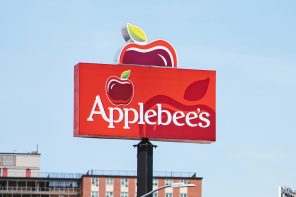Two fast food ads have either been edited or removed entirely over the last week following complaints to the Advertising Standards Authority. An ad for KFC’s Zinger Burger was found to encourage sexual harassment while an ad for Burger King’s summer specials supposedly encouraged drug use. It’s not the first time that fast food ads have drawn controversy over social themes, and it's unlikely to be the last.
In the KFC ad, a man is changing by the side of the road while a woman shields him with a towel. As a car approaches, the woman deliberately drops the towel, leaving the man exposed. Eight complaints were made in total, with one arguing that it is an example of “sexual harassment and humiliation” and that her actions are “seemingly portrayed as funny and socially acceptable”.
Restaurants Brands said that the scene was intended to be a light-hearted joke between friends.
“We apologise if the ad unintentionally breached rule 1 (c) of the advertising standards code,” the company said in a statement. “There was absolutely no intention to portray anyone being exploited or degraded.”
The advertisement has been pulled from all channels, and no further action has been taken by the ASA, acknowledging the co-operation of Restaurant Brands.
In the Burger King ad, a man was pictured with his back to the camera “making a slurping sound” while his friends ate sundaes and pies. The voiceover said, “temperatures are high, so cool off with Burger King's summer treats.”
One complainant said that the ad was irresponsibly targeting young people while an actor mimicked the actions of someone using a bong, saying that it was “a complete sell-out for a multi-national.” Another complainant also took issue with the drug inference: “Don't really think glorifying drug taking or masking it in [an] advert is that appropriate.”
Burger King said that the image had been updated and that a drug reference was never the intent of the scene – despite it being the second Burger King ad with references to marijuana, with the first featuring a Kombi fan by a beach filled with smoke, and the caption “It looks like we’re in for a blazing summer.”
“The intent was to create cut-through by showing a universally annoying behaviour – noisy drink slurping,” the company said in a statement. The advertisement has since been updated to “cut straight to face-on view of the young man consuming the frozen drink to avoid any confusion.”
This isn’t the first time that Burger King has had an ASA complaint upheld. Two television advertisements were withdrawn in 2007 after breaching a standard forbidding the use of sex appeal to draw attention to a product. In its defence, Burger King and advertising agency Y&R said that “to avoid any confusion that we were attempting to present our BK Girls in an overtly sexual manner, we ensured that the shooting style came across as a mockumentary … We also ensured that the girls were dressed in bikinis that an average young woman would typically be comfortable in.”
Carls Jr. faced a similar ruling in 2013, although it was prevented from showing the advertisement at all by the Commercial Approval Bureau, which must approve any advertisement before they appear on air. The advertisement, which was made in the USA, featured two women in bikini tops and denim shorts making and eating burgers in a highly suggestive manner.
The CAB, which is owned by local TV networks, decided that the advertisement used sex appeal in a degrading manner, as well as using sex to sell an unrelated product.
“In our opinion, this ad breaches the code and we're obviously protecting the interests of the broadcasters,” CAB general manager Rob Hoar said at the time. He also cited the Burger King case from 2007, saying that the ruling had set a precedent.
Restaurant Brands CEO Russell Creedy said that the decision was puritanical and an example of the “nanny state.”
“[The advertisement] is nothing different to what you see on free-to-air TV shows.”
The Advertising Standards Authority frequently gets complaints about fast food advertising. In one complaint, which was found to have no grounds to succeed, a concerned citizen complained that an advertisement for Subway’s spicy buffalo chicken sub was “[encouraging] negative stereotypes of people with ginger hair”, “[encouraging] bullying” and was “lazy advertising.”
“This kind of advertising only further encourages the stereotype that all gingers are one-dimensional dweebs.”
The ASA found that there were no grounds to proceed as it “did not consider the ginger-haired character had been singled out for ridicule.”






